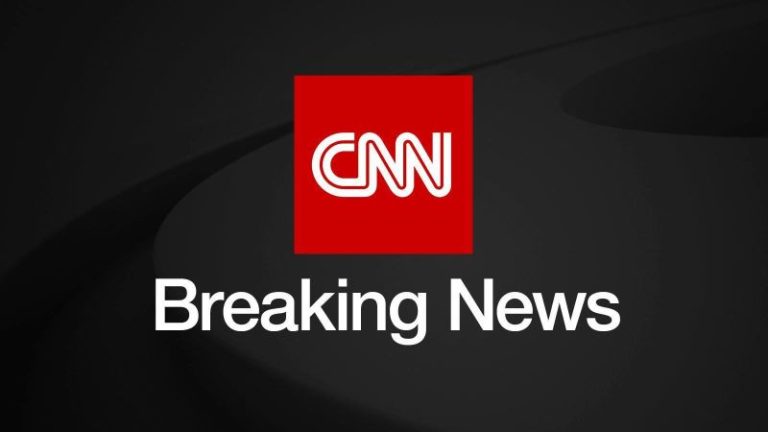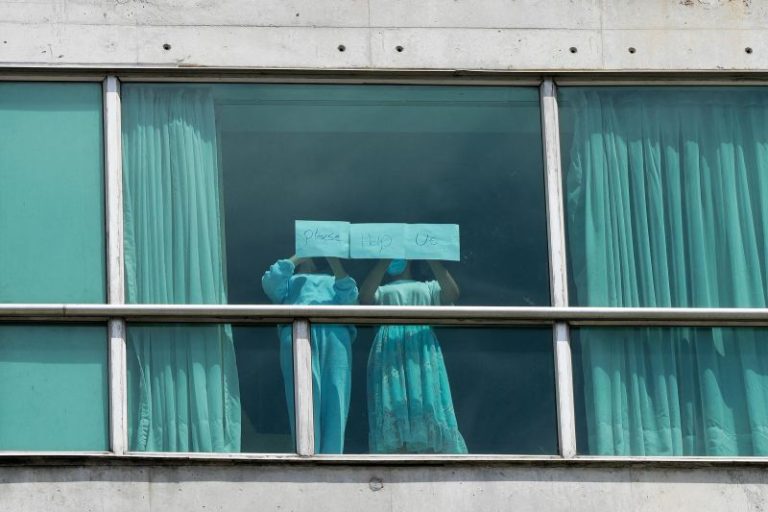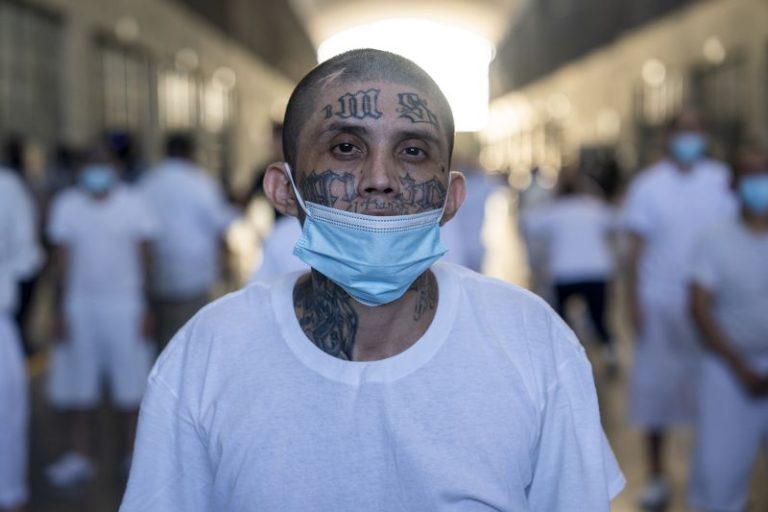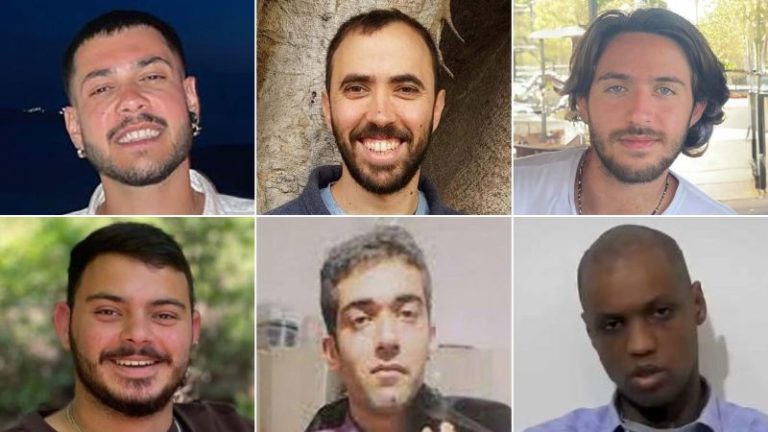For weeks, an unpleasant dream haunted Md (short for Mohammed) Atik Ullah Khan. In his sleep, he heard machine guns and saw himself stuck in a fierce fight between a group of pirates and navy commandos. He woke up sweating.
“I was running and running… trying to go to a safe place, but I could not,” Khan recalls of the recurring nightmare.
Khan, 39, was the chief officer of Bangladesh-flagged merchant vessel Abdullah when it was hijacked on March 12, 2024, roughly 550 nautical miles off the coast of Somalia.
The MV Abdullah was sailing from Mozambique to the United Arab Emirates with 55,000 tons of coal. Around 10 a.m. local time, an unidentified fishing boat appeared on the radar. Soon watchmen spotted six people with automatic rifles heading towards them in a speed boat. Six more followed in another vessel.
Ship crew put out a mayday call. “But nobody responded,” Khan said.
“Then I called the engine room and told them to cancel all speed limits and throttle to the maximum. But our speed was nothing compared to the pirates’ speedboat,” he added.
Minutes later, 12 pirates came onboard, fired rounds, took control of the ship and held its crew hostage.
After almost a decade of hibernation, Somali pirates have resurfaced. Their reemergence follows the Yemeni Houthi movement’s campaign to target Red Sea shipping in support of Hamas in its war with Israel. Analysts believe the Red Sea crisis has drawn the attention of counter-piracy naval resources deployed in the region and acted as a distraction, allowing the pirates to stage a comeback.
A report published in November by Lloyd’s List, a maritime industry journal, citing information provided by Seahawk Maritime Intelligence, warned that expanding ties between Somali pirates, Houthis and other regional actors could critically disrupt maritime commerce along vital Red Sea and Indian Ocean shipping lanes.
In December 2023, a month after the Iran-backed Houthi rebels started striking merchant ships, Somali pirates hijacked MV Ruen, a Maltese-flagged cargo ship from the Indian Ocean. That was the first successful hijacking of a merchant ship since 2017.
From January 1 to September 30, 2024, three vessels were hijacked, two were boarded and fired upon, and three reported attempted attacks in the waters off Somalia, according to the International Maritime Bureau.
Compared to the previous phases of Somali piracy, the current threat is moderate, with piracy attacks assessed as being a “realistic possibility,” according to a December 2024 report from the EU Naval Force Maritime Security Centre.
At their peak in 2011, piracy incidents off the coast of Somalia reached a record high of 237, costing the global economy $7 billion that year, according to one report. More than 3,863 seafarers were fired upon with assault rifles and rocket-propelled grenades in those 12 months.
Nonetheless, the recent rise in piracy attacks has added another layer of complexity to global maritime commerce, which is already grappling with the strategic shocks of the Red Sea crisis.
“We are potentially at a critical point where any further disruption will be very tangible to consumers all over the world. That is the critical concern,” said Ian Ralby, a senior fellow at the US-based Center for Maritime Strategy think tank.
JP Morgan Research calculated in February 2024 that the crisis had led to a near fivefold surge in shipping costs from Asia to Europe, with implications for the prices of imported goods – from clothes and electronics to gas and food grains.
To avoid the Houthi strikes, merchant ships have detoured around the Cape of Good Hope, incurring an estimated additional $1 million cost per vessel through increased fuel, insurance, and operational costs.
The Houthi attacks led to a 50% drop in trade in the first two months of 2024 compared to a year earlier through the Suez Canal, the shortest maritime route between Asia and Europe, the International Monetary Fund said in a March 2024 report. The longer route also resulted in a delay of 10 days on average to the shipment delivery times, hurting businesses with limited inventories, the report said.
Going back to the 1990s, the agony of the local fishing community over unregulated commercial trawling was a catalyst for the rise of piracy. Many experts say that it started as an armed uprising of local fishermen against the aggressive presence of foreign trawlers in Somalia’s territorial waters, which was depriving the community of its traditional livelihood.
Somalia’s marine waters, rich with fisheries of species such as yellowfin tuna, blue marlin, swordfish and sardines, have historically helped the country’s fishing communities thrive.
But in the absence of stable governance and effective regulations since the 1991 civil war, foreign fishing trawlers have deployed ruinous techniques to exploit the rich fishing environment.
“(They) use big machines which destroy the hills where fish hide in the sea,” said Merem Mohammed Amber Khamis.
Khamis, 35, is a fisherman from Eyl, an ancient port town reputed to be the birthplace of piracy in Somalia. He earns $90 every two weeks to feed a family of 14.
Khamis said he joined a pirate group in around 2003. That year, foreign industrial fishing reported a catch of 337.2 million metric tons of fish from Somali waters, while 32.4 million metric tons were caught by local fishermen, according to a report published in the World Affairs journal in 2017.
For two years, he worked as a foot soldier when needed, Khamis said, transporting fuel and weekly rations to hijacked ships for a daily rate of between $200 and $400.
“I came to my family, and there was no food on the table,” he said. “The only option which was available was to do this activity.”
At that time, with commercial fishing encroaching on their traditional livelihoods, most people in his town decided to take up piracy, Khamis asserted.
In its initial phase, between 1990 and 2005, pirate attacks were sporadic and contained mostly in the Gulf of Aden. After 2005, criminal entities emerged on the scene and attacks gradually became more organized and frequent, expanding to Somalia’s eastern coast.
The next shift, in both the number and geographical range of piracy incidents, came around 2007, when those involved began commandeering larger boats for use in storming commercial carriers hundreds of nautical miles from the Somali coast.
“It is very difficult to justify that and multi-million dollar payouts by virtue of illegal fishing,” he added.
Khamis observes that piracy has evolved with the participation of wealthy people from Somalia’s cities, often with political power, coming in and replacing the smaller ragtag groups. He believes they mobilize traditional fishing communities to fulfil their ambitions.
Today, Somali pirates operate a strong network comprised of people working in defined roles; those who gather intelligence on potential targets, foot soldiers who take part in attacks, skilled mariners responsible for controlling hijacked ships – from large commercial vessels to fishing boats – and financiers who bear the cost of operations, according to Troels Burchall Henningsen, an assistant professor at the Royal Danish Defence College.
Khan recalls how he spoke to his wife on the morning of the pirates’ attack. He mentioned that the region he was crossing through was infamous for piracy. “My wife got scared,” he said. He shared a picture of the guide map that confirmed the ship was voyaging miles away from the area demarcated as the most risk-prone. Khan did not want her to get anxious as she was five months pregnant.
When the attack happened, the 23 crew members were still in disbelief. Their vessel had been on a busy shipping route since leaving Mozambique; they thought they were safe, Khan said.
Despite the MV Abdullah transiting through a region renowned for having some of the world’s deadliest pirate groups, there were no armed guards present on board at the time of the attack. The ship’s crew was told that armed guards were not required as their travel path did not fall within the demarcated High Risk Area (HRA), Khan said.
Footage from the attack reveals that MV Abdullah lacked physical barriers, such as barbed wire fencing and water cannons – provisions recommended in Best Management Practices 5 (BMP5), a guidance manual provided by international maritime trade organizations for merchant ships to help deter piracy in the Red Sea, Gulf of Aden, Indian Ocean and Arabian Sea.
After taking control, the pirates took the ship closer to the coast. Once anchored, about 60 pirates stormed in and set up – with their weapons – across all the areas of the ship. They also brought an interpreter on board to communicate with the Bengali- and English-speaking crew.
The hostages were forced to confine themselves to the bridge, Khan said – the 160 square meters (roughly 1,700 square feet) command deck of the ship, where they also had to sleep.
They had little drinking water and hygiene levels dropped dramatically when the additional 60 pirates boarded. Khan developed a severe skin infection from sharing the bathroom, and he could only wash himself once a week.
The fungal infection spread to three of the crew members within days. Khan had to quarantine himself to save the rest from contamination.
In daylight hours, pirate watchmen worked in shifts during which they would oil, service and test-fire their guns. The most capable of them were reserved for duty during the hours of darkness. At night, they would turn all the lights on, chew stimulant khat leaves and remain prepared for military operations.
The pirates seemed keen to know if the hijacking was making any headlines. They monitored news channels and showed the hostages how their families were suffering on TV.
Meanwhile, Khan and his colleagues did not have much to do. They could only leave the bridge for short periods to conduct routine maintenance work. They mostly spent their time playing cards and board games.
But after a while, they got bored of the games too. Tensions ran high among them and some developed acute anxiety, Khan said.
They all kept thinking about their families. Since the pirates had seized their phones, those few who had managed to hide secondary phones did not dare to use them in the open.
Khan often daydreamed, he recalls, telling himself: “One day, we will have a beautiful day, and we will go home.”
A land-based problem with maritime symptoms
From 2012, the number of Somali piracy attacks declined sharply as counter-piracy measures – a greater international naval presence; legislation to prosecute suspected pirates within the region; ships carrying armed guards and best management practices – proved effective, experts say.
Since piracy was no longer as lucrative as before, the enterprise metamorphosed into “generic criminal networks that are specialized in maritime activities,” said Burchall Henningsen, of the Royal Danish Defence College.
The pirates turned their attention to the illicit trade of drugs, weapons and human trafficking, he said.
Over the years, the international response to Somali piracy has predominantly been centered on addressing offshore dynamics. “There has not been much about the onshore dynamics, that are dismantling the criminal networks,” said Omar Mahmood, senior analyst at the International Crisis Group, an NGO working towards mitigating deadly conflicts. “And also addressing local concerns and livelihoods.”
“The root causes of piracy were never addressed,” said Raj Mohabeer, officer in charge at the General Secretariat of the Indian Ocean Commission – an inter-governmental organization of the South-West Indian Ocean island states. Pirates kept the millions of dollars they gained from ransoms and illegal trades, he said, and all but Mohamed Abdi Afweyne, the kingpin who was released from prison in January 2025, remained beyond the reach of prosecution. “And you know that the piracy, its main driver is funds,” he added.
In late 2023, Houthi attacks in the Red Sea destroyed the equilibrium that was achieved by the counter-piracy measures of the previous decade and made piracy a remunerative choice again.
Since the beginning of the Israel-Hamas war, Houthi rebels have attacked navy and commercial ships transiting through the Red Sea. Between November 2023 and October 2024, they launched nearly 190 strikes. These lethal attacks using advanced weaponry prompted global powers to move their intelligence assets and warships from the Indian Ocean region to the Red Sea, Burchall Henningsen said.
Analysts believe the redistribution made the merchant ships that were detouring around the Cape of Good Hope vulnerable to piracy in the western Indian Ocean.
But that is not the only factor in the current resurgence.
Maritime trade organizations removed the Indian Ocean High Risk Area (HRA) in January 2023, citing the “significantly improved piracy situation in the region.”
The removal of the HRA from the Somali basin increased confidence among shipping companies and seafarers. Commercial ships operating in the area stopped using armed guards and frequently ignored protective practices, said former UN Military Observer Lars H. Bergqvist.
The UN Security Council’s decision in 2022 not to extend a resolution allowing international navies to neutralize piracy threats in Somalia’s territorial waters – on the basis that such operations exacerbated regional instability – has also been a factor, experts say.
Today, there is a concern over the growing capabilities of Somali pirates based on their purported alliance with regional actors like the Al Qaeda-affiliated al-Shabaab militant group and the Houthi rebels.
Gulel Ahmed, an expert on terrorist financing, said the pirates’ association with al-Shabaab was known earlier, but now the alleged partnership with the Houthis has made them “more lethal than before.”
The Houthis rely on pirates for smuggling oil and weapons, Ahmed said. They also share intelligence on ships heading towards the Red Sea through the Gulf of Aden, he added.
The UN Panel of Experts on Yemen documented an increase in weapons smuggling involving Somalia’s al-Shabaab and Yemen’s Houthis in its October 2024 report.
According to a Lloyd’s List report citing Seahawk Maritime Intelligence, “This strategic alliance allows the Houthis to exert control over shipping routes while financing their operations through illicit piracy proceeds and arms smuggling.”
Ahmed is monitoring the new Trump administration’s policy decisions. He anticipates that an aggressive US response this time may disrupt the alliance.
The Houthis have promised to stop their attacks on cargo ships in the Red Sea, and on Israel, so long as the fragile ceasefire deal between Israel and Hamas is maintained. However, they reiterated that aggressions from the US, UK, or Israel could lead to escalations. On January 22, they freed the crew of a cargo ship hijacked more than a year ago.
In his first week in office, President Donald Trump re-designated the Houthis as a “Foreign Terrorist Organization” (FTO), days after outgoing President Joe Biden designated them a “Specially Designated Global Terrorist” (SDGT) entity. The Biden administration had previously delisted the Houthis as a FTO in February 2021, citing the need to enable humanitarian aid to Yemen.
Trump’s move triggered speculation as to how it might impact regional stability.
On the morning of their release last April, Khan sensed a charged environment on the MV Abdullah. He saw pirates dressing and packing their belongings.
After 32 days in captivity, Khan returned home to Bangladesh. Months later, he remains reluctant to go back to sea but is afraid he will end up returning, as there are few opportunities for him on land.
Whilst the return of Somali piracy has posed a threat to global maritime commerce, it has affected seamen engaged in regional shipping disproportionately. They operate in a low-profit environment, which makes the owners of those ships unwilling or unable to afford armed guards onboard, said Burchall Henningsen.
“When it comes to actual attacks, the seafarers and their families have to bear the consequences,” said Khan.
The wages are not worth the personal risk, he continued. “My daughters say they don’t want toys, but me.”
Reporter & Writer
Soham Mitra
Data & Graphics
Lou Robinson, Soham Mitra and Rachel Wilson
Motion Designer
Patrick Gallagher
Video Producer
Louis Leeson
Photo Editor
Toby Hancock
Visual Editors
Mark Oliver and Sarah-Grace Mankarious
Editors
Hannah Strange and Laura Smith-Spark
This post appeared first on cnn.com










